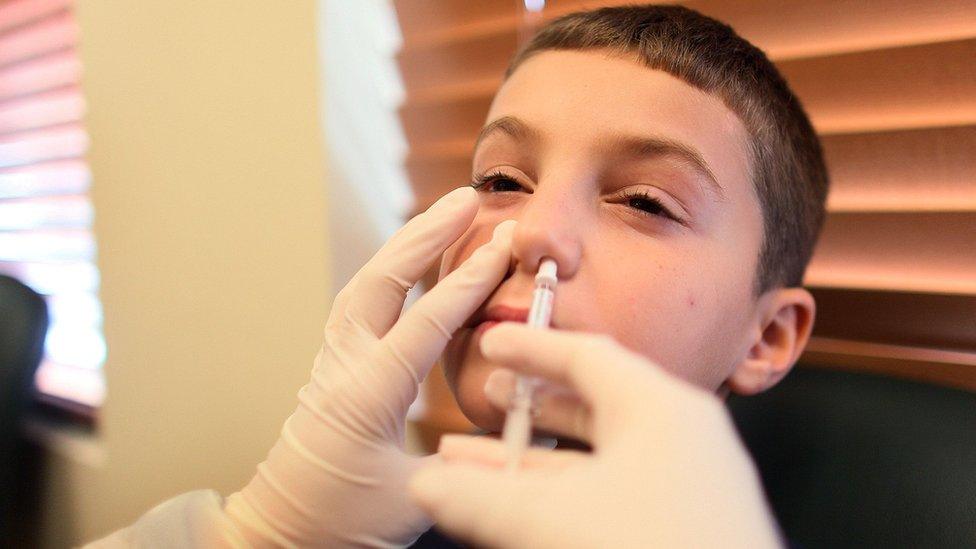Children's flu vaccine: PHA downplays fears over delays
- Published

The problem only affects the Fluenz Tetra children's nasal flu vaccine
A delay in delivering the flu vaccine to children in schools across NI should not cause parents to panic, according to the Public Health Agency (PHA).
NI Assistant Director of Public Health, Dr Gerry Waldron, told the BBC that the disruption to supply may lead to vaccinations in some primary schools being rescheduled.
However, he said he did not believe the public should be alarmed.
In the UK, flu season starts with a small number of cases in the autumn.
It enters full swing around January and February and declines in March.
Dr Waldron said: "Everyone who is entitled should be able to get it during the current year and before we expect the flu season to start."
'Outside our control'
The problem only affects the Fluenz Tetra children's nasal flu vaccine. Supplies are expected to arrive in December.
Dr Waldron explained that the PHA has known about the shortage for four weeks and has been reacting accordingly.
"Whilst this situation is unfortunate, it is completely outside our control and we would continue to urge eligible people to continue to get vaccinated," he said.
"Practically speaking, what it means is that some children who are not at risk will have a slight delay in when they can get their vaccine, but we fully expect that everybody who needs it will have it in time."
The delay is due to issues relating to routine testing of the vaccine and not related to the safety or the efficacy of the vaccine, according to the PHA.
Dr Waldron said children affected can go instead to their GP to receive the vaccine, but some GPs will have to prioritise patients.
"The school vaccination programme is currently continuing as normal. Pupils at special schools have already received their vaccine."
Health trusts each have contingency plans for managing the rescheduling of the affected vaccination slots.
Dr Waldron said the PHA is working with counterparts across the UK and the vaccine manufacturer, but added that as information is being updated daily, it is not possible to put a figure on the number of children whose vaccination will be delayed.
"However, everyone who is eligible should still be able to receive the flu vaccine in due course," he added.
The problem does not impact on the adult flu vaccination programme.
- Published29 August 2019
